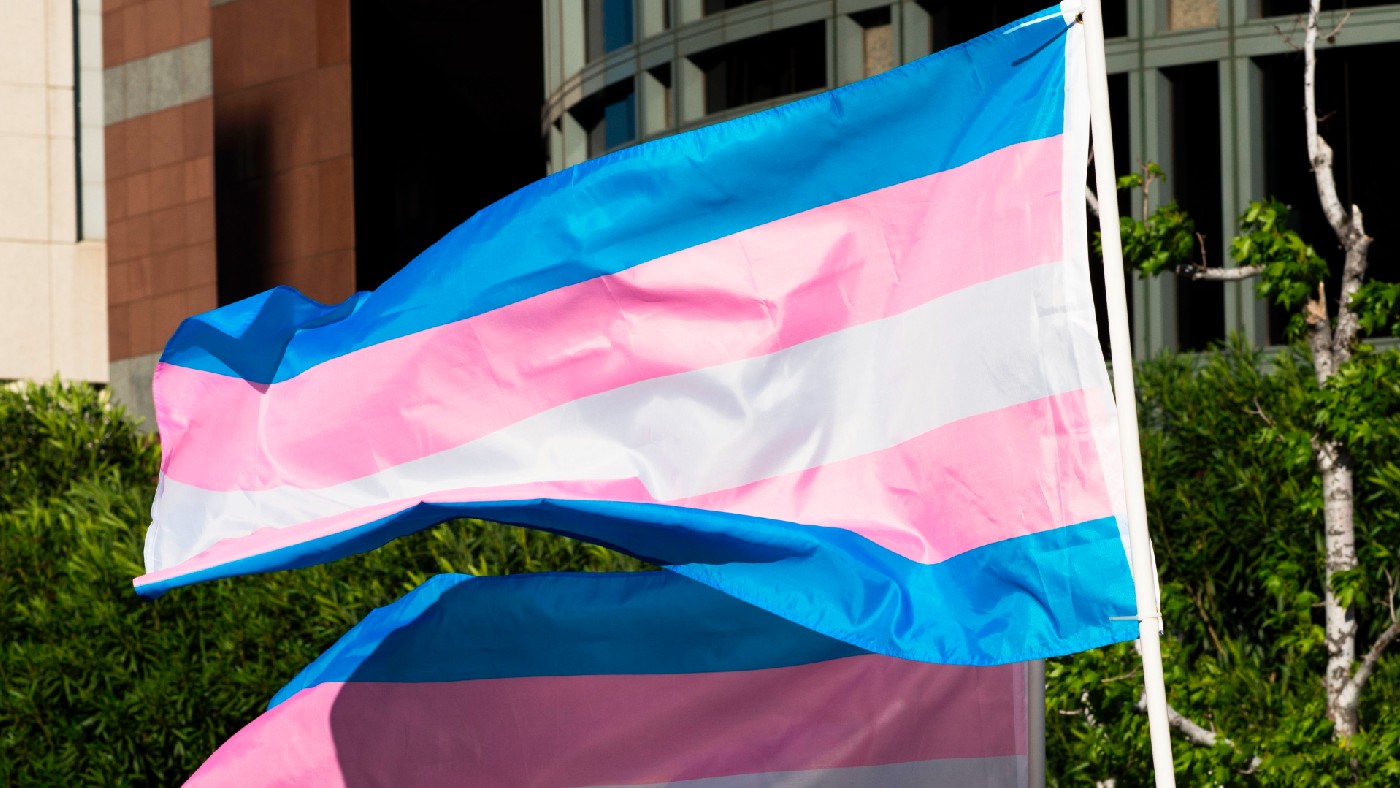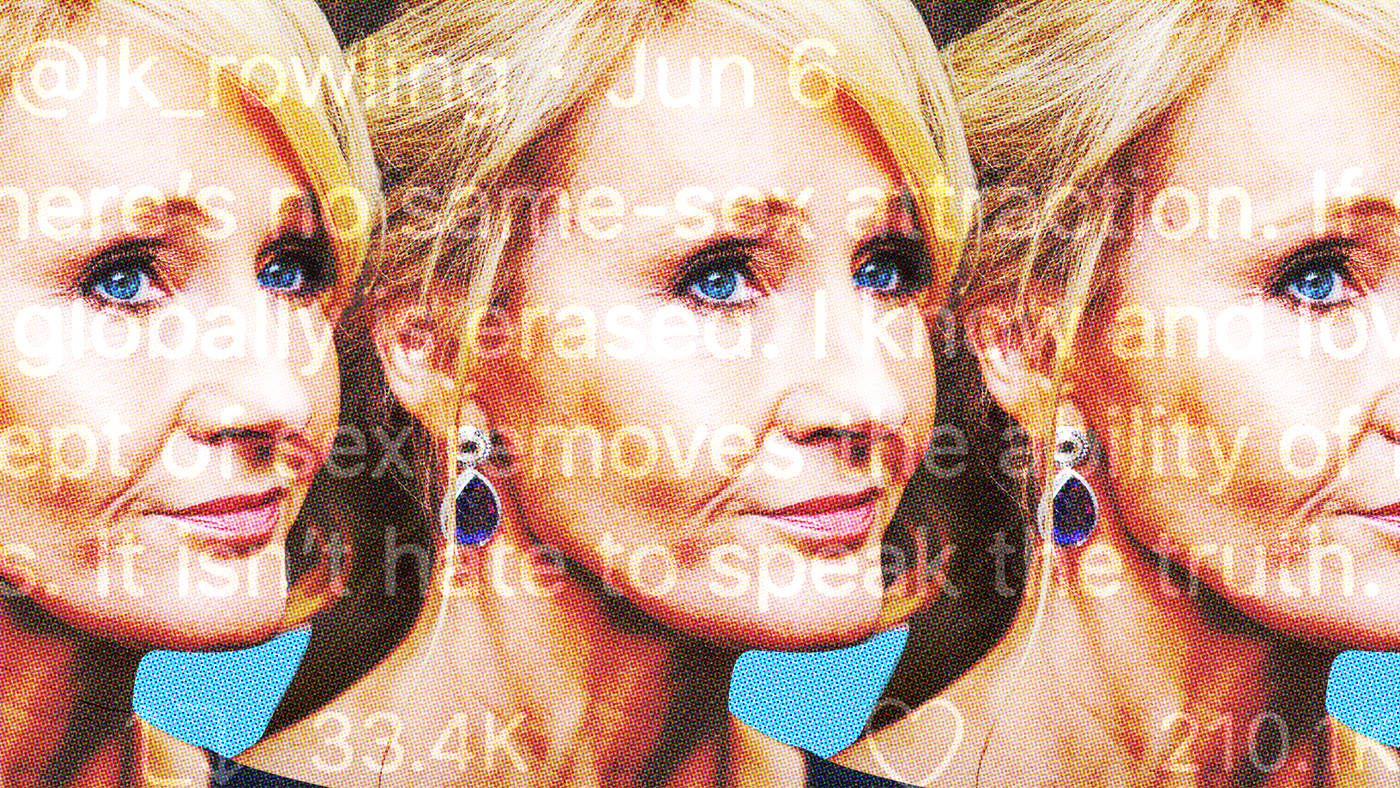One in 20 young Americans identify as trans or non-binary
New research suggests that 44% of US adults know someone who is transgender

A free daily email with the biggest news stories of the day – and the best features from TheWeek.com
You are now subscribed
Your newsletter sign-up was successful
Just over 5% of Americans aged 18 to 29 say their gender is different from their birth sex, according to a new study.
Data from a Pew Research Center survey found that 5.1% of young adults identified as transgender or non-binary, the latter term describing people who do not identify exclusively as male or female.
Across all US adults, the figure is lower at just 1.6%, the study showed. But despite this relatively small number, many people across the country now say they know someone who is trans or non-binary. More than four in ten (44%) say they know someone who is trans and 20% know someone who is non-binary.
The Week
Escape your echo chamber. Get the facts behind the news, plus analysis from multiple perspectives.

Sign up for The Week's Free Newsletters
From our morning news briefing to a weekly Good News Newsletter, get the best of The Week delivered directly to your inbox.
From our morning news briefing to a weekly Good News Newsletter, get the best of The Week delivered directly to your inbox.
The findings suggest that the proportion of the US population that identifies as transgender and non-binary is significantly higher than previously estimated. In June last year, it was claimed that there were 1.2 million non-binary adults in the country, whereas the latest Pew data would indicate it is about 5.3 million.
Pew released its findings alongside a report on the “experiences, challenges and hopes of transgender and nonbinary U.S. adults”, which was guided by focus groups who offered insights into people who have become both “increasingly visible and accepted – as well as targeted and marginalised – in recent years”, The Washington Post said.
“Advocates have known for some time that statisticians have been undercounting the number of trans people in the US,” said Olivia Hunt, policy director at the National Center for Transgender Equality (NCTE), a trans advocacy group. Because of which, “we’ve had a lot of lawmakers and policymakers dismiss the needs of trans and nonbinary people”.
Hunt added, however, that she was heartened by the increase in research, and proud of the number of people willing to come out as trans and non-binary.
A free daily email with the biggest news stories of the day – and the best features from TheWeek.com
“These are people who are coming out and being public because they’re not going to be intimidated,” Hunt said. “We’re a part of society that is not going away.”
-
 How the FCC’s ‘equal time’ rule works
How the FCC’s ‘equal time’ rule worksIn the Spotlight The law is at the heart of the Colbert-CBS conflict
-
 What is the endgame in the DHS shutdown?
What is the endgame in the DHS shutdown?Today’s Big Question Democrats want to rein in ICE’s immigration crackdown
-
 ‘Poor time management isn’t just an inconvenience’
‘Poor time management isn’t just an inconvenience’Instant Opinion Opinion, comment and editorials of the day
-
 There is more at stake with the 'Emilia Pérez' Oscar nominations than just a gold statue
There is more at stake with the 'Emilia Pérez' Oscar nominations than just a gold statueIN THE SPOTLIGHT As cinephiles debate artistic merits and award season odds, transgender activists and Mexican nationals grapple with the social implications of one of the most divisive films of the year
-
 Emilia Pérez: the most hated film at the Oscars
Emilia Pérez: the most hated film at the OscarsTalking Point Why is Hollywood fêting a 'garish' movie critics call 'an abomination'?
-
 A timeline of JK Rowling's anti-trans shift
A timeline of JK Rowling's anti-trans shiftIn Depth The 'Harry Potter' author's comments about the trans community are ongoing
-
 Róisín Murphy: Irish singer in puberty blockers row
Róisín Murphy: Irish singer in puberty blockers rowMoloko star voiced concern over the use of medication by transgender children
-
 Hogwarts Legacy and other boycott backlashes
Hogwarts Legacy and other boycott backlashesUnder the Radar Controversial Harry Potter video game is topping sales charts despite the J.K. Rowling controversy
-
 Pros and cons of gender-neutral award categories
Pros and cons of gender-neutral award categoriesPros and Cons Does the move make galas more or less inclusive?
-
 Hogwarts Legacy: to buy or to boycott?
Hogwarts Legacy: to buy or to boycott?Talking Point A new Harry Potter video game is facing a backlash from trans activists over J.K. Rowling’s views
-
 Sport on TV guide: Christmas 2022 and New Year listings
Sport on TV guide: Christmas 2022 and New Year listingsSpeed Read Enjoy a feast of sporting action with football, darts, rugby union, racing, NFL and NBA